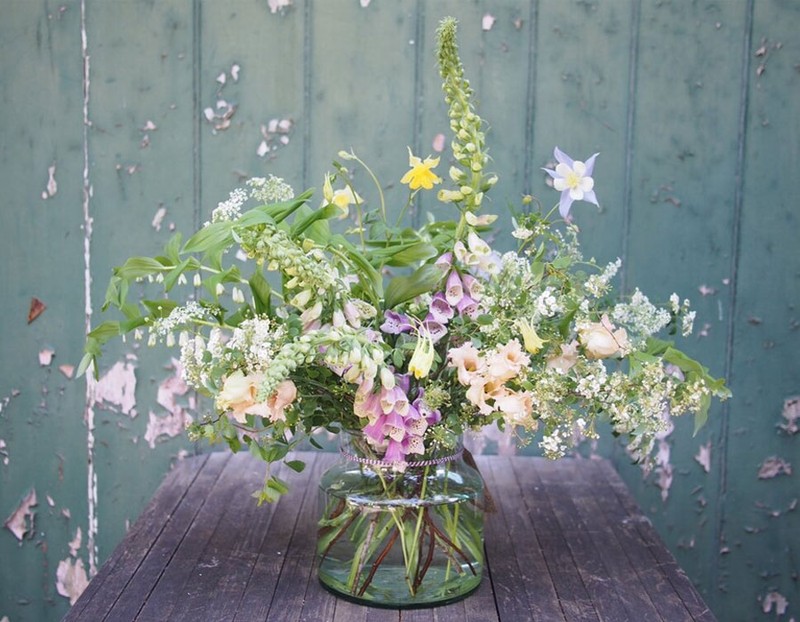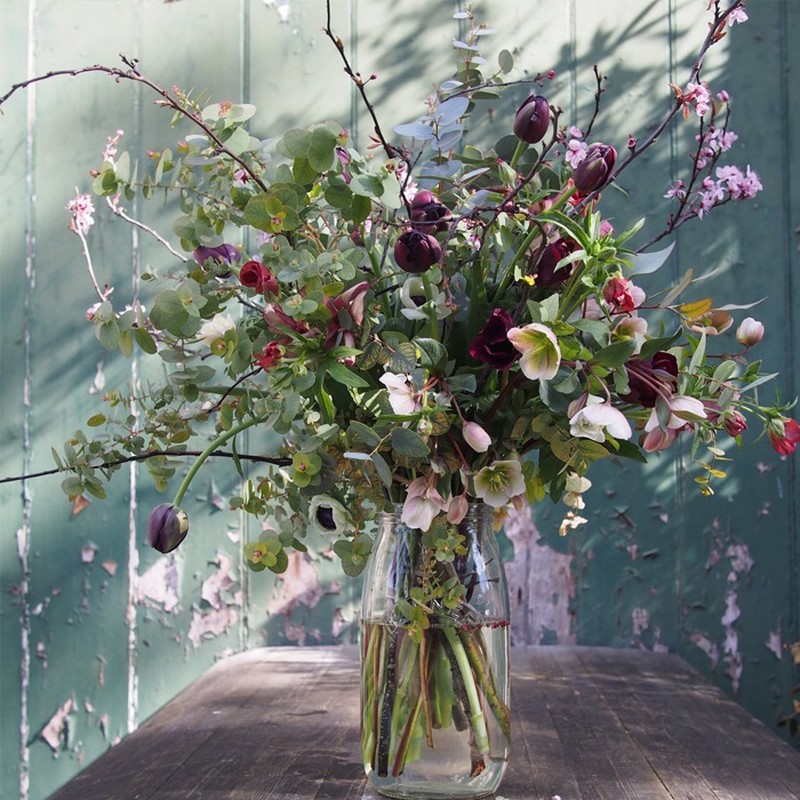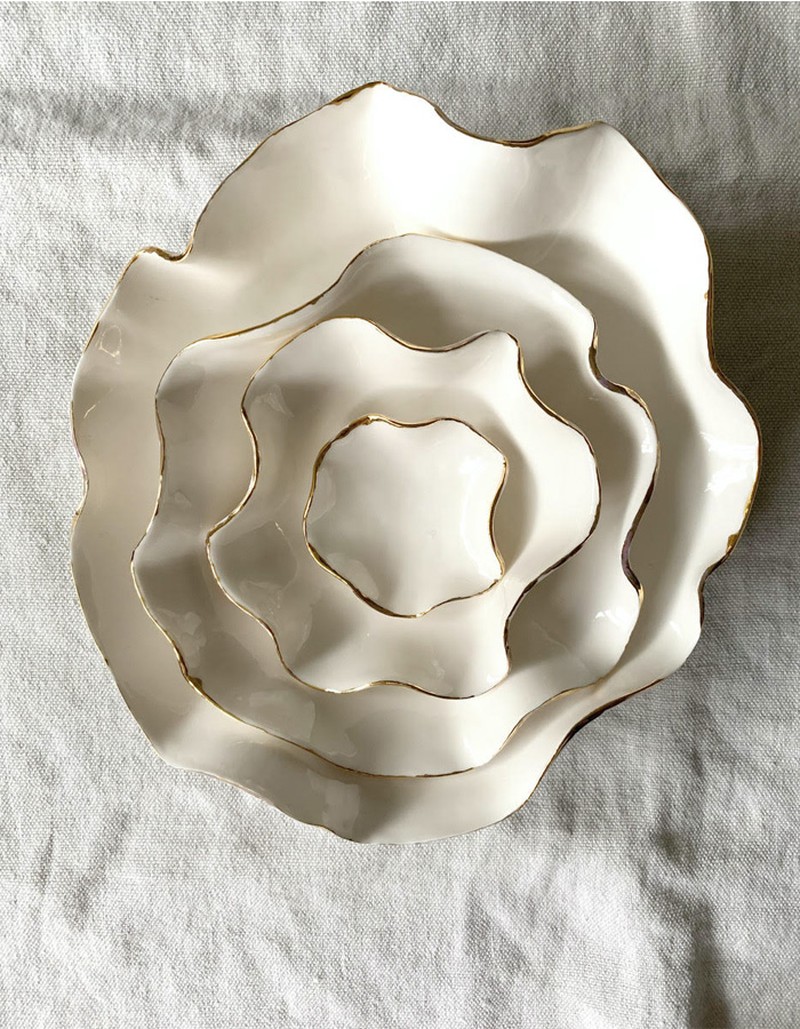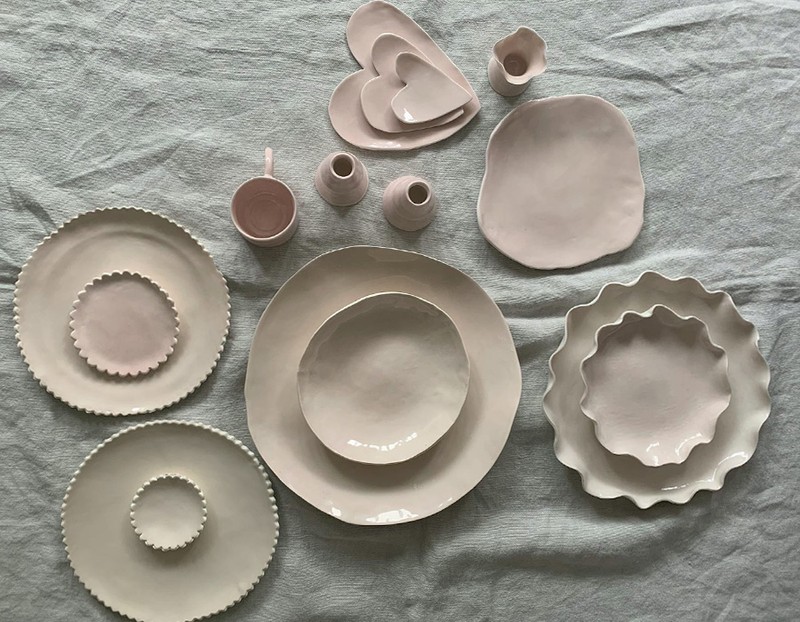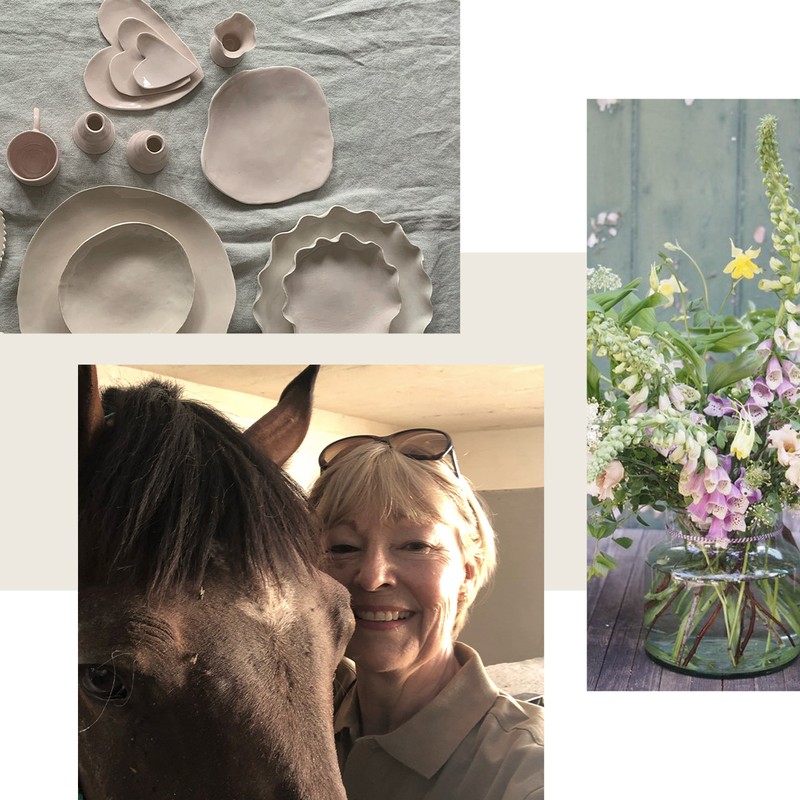
5 Women On Changing Their Careers Later In Life
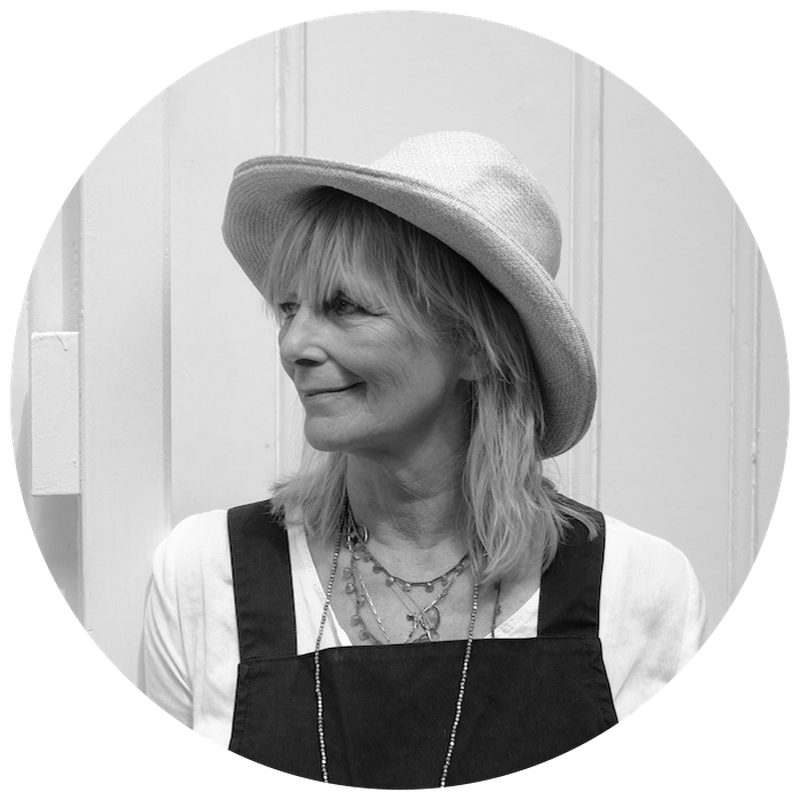
Melissa Richardson
Melissa Richardson set up and ran the successful modelling agency Take 2 for nearly 30 years before founding Jam Jar Flowers in 2009. Today, her south London-based studio designs floral arrangements and art pieces for bespoke events, weddings and private clients.
“After going to drama school, I was a photographer’s agent for a short time in my early twenties and later became a stylist. I ran a photographer’s studio where I learned about model agencies and realised that was the career path I wanted to go down. After getting a job at the Laraine Ashton Agency (now IMG Models), my dad thought I’d be good at running my own modelling agency – which was a more lucrative option at the time. I was 25 when I set up my first agency and ran Take 2 for 27 years. Then, I had a moment where I suddenly realised that I didn’t want to do it anymore. The business had changed a lot and I felt as though lots of the girls we represented weren’t able to cope in the industry. Combined with losing a bit of faith in myself and losing some money, I decided to close the agency.
“I founded Jam Jar as I’ve always loved flowers. I grew up with a beautiful garden in a home that my family restored in the 50s. It was surrounded by walled gardens and ancient woodland, and both my parents instilled a love of flowers in me. When I started my agency, I wanted to be in the fashion industry and be part of the cool London scene. I’d spent my whole life as a child wanting to be in the city, so while I always had a love of flowers, being a florist didn’t appeal in my early twenties. It was only as I got older that I realised I could make a career out of it. Lots of the skills are identical – running a team, looking after a business and having a good eye for beauty are both key.
“When I left my old career behind, I struggled with a loss of identity. From the age of 55, I’d been working in the agency world for nearly 30 years, so the job was part of my identity. Taking that away made me feel naked. After the first year, I became very depressed and often struggled to get out of bed in the morning. I felt as though I’d lost some of my sense of worth and it was a very difficult transition. However, when I decided to start the flower business, it was therapeutic to have something to look forward to and have a sense of purpose again.
“I’ve always enjoyed working for myself. I’m very independent-minded and have always enjoyed the creative side of things. Jam Jar Flowers has grown so much, and I’m amazed at how far everything has come. I was lucky that I could support myself financially while the business was just starting out. However, I underestimated how physically demanding being a florist would be. Being on your feet all day, having to get up at the crack of dawn, carrying heavy items, delivering goods and running the business was a challenge at first. I still have moments now when I feel apprehensive about things, like putting up a big installation at a top London restaurant.
“My husband has been a fantastic support throughout my career. As a model agent, I often spent long periods abroad, so much of the childcare fell to him. On the other hand, my kids were horrified when I said I was going to become a florist and they couldn’t understand why I wanted to give up such a cool profession in the fashion world. Looking back, I felt very guilty and sad that I missed so much of their childhood but as a result I see much more of them now as adults, which is great.
“For those who want to change career, my advice is to just go for it. It’s so life-enhancing to start something new. There’s a whole new energy to explore and new people to meet. Sometimes in life, you have to take a chance. Take sensible precautions, make sure you have enough money for the first few months and work out your business plan, then make a go of it. I think women in their fifties are sometimes more qualified than younger people – there’s more life experience and wisdom to learn from. I have lots of friends who have changed career and, on the whole, we feel more alive. It keeps the mind young and gives you a strong sense of purpose.”
Visit JamJarFlowers.co.uk
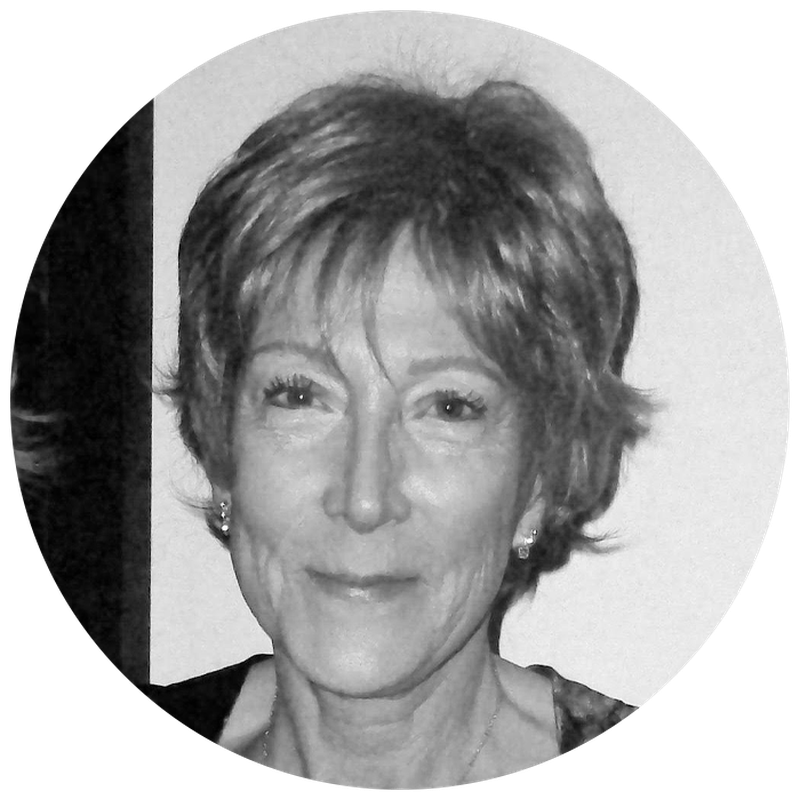
Hilary Kingsley
After working as a Fleet Street journalist for nearly 40 years, Hilary decided to quit her job and retrain as a lawyer at the age of 60. She then spent ten years working as a media lawyer.
“After reading English at university, I was lucky enough to get a place on the Daily Mirror journalist training scheme where I worked for two years. I then moved to The Sunday People as a reporter, before going back to the Daily Mirror as a TV critic and showbiz writer. I decided to go freelance some years later – it was tough working six or seven days a week, especially for my children. When my younger daughter had finished university and was starting a legal training course, I was looking through some of her books when it suddenly occurred to me that I could be a lawyer, too. I realised that I’d come to the end of my journey as a journalist and wanted to try something completely different. I was also a magistrate at the time, so was familiar with how the legal system worked.
“Studying again at the age of 60 was great. I loved being a student and wasn’t phased that everyone else in my class was in their early twenties. In fact, I met some lovely people along the way. I was the only mature student, but it didn’t seem to matter. I felt lucky to be able to study the course as I was in a position to afford the fees. When I qualified, I was able to merge my two careers by becoming a media lawyer.
“My daughter helped me with my studies, and I felt lucky to have my family’s support along the way. I initially found studying law quite difficult, but I was so pleased when I passed all my exams. It was a great achievement and getting my practising certificate was a wonderful moment. Having taught myself media law, I was in a position to help other people which gave me a great satisfaction. My husband thought it was bizarre at first, but he was very supportive when I said I wanted to go into it. At the time, my father who had dementia was living with me, too – it was a challenge, but we made it work.
“In the first couple of years, I had lots of concerns about whether it was going to be a success. Would I pass my exams? Am I going to waste lots of money? Having been a successful journalist, I was in the financial position to be able to try something new. I’d definitely encourage people in their fifties or sixties to try something new if they’re fed up with their career. I knew someone who was a prison officer for 25 years who retrained as a podiatrist!
“I wish I’d realised how reluctant employers are to take a chance with people in their sixties. I had to apply to lots of different places to secure a training contract which was very difficult. I think people looked at me and thought I wouldn’t be as useful as someone 20 or 30 years younger. In the end, I applied for work experience at the Daily Mail, which later materialised into a job. I was very lucky, but that’s not to say it wasn’t difficult or disheartening at times.
“If you’re looking to change career later in life, research your new field as much as possible. It’s key to know what lies ahead but, equally, don’t let other people put you off. People might be surprised you’re not in your twenties, but the minds of more mature people are just as good! When you get older, you have a sort of resilience and understand the world a little bit more – use that to your advantage. You don’t need to compete with younger people, but perseverance is key.
“My only regret is not doing it sooner. If I’d started ten years before, I would have had more experience and could have become a coroner, been on the parole board, or even become a district judge. That said, I’m proud of what I’ve achieved and I’m so glad I decided to try something different.”
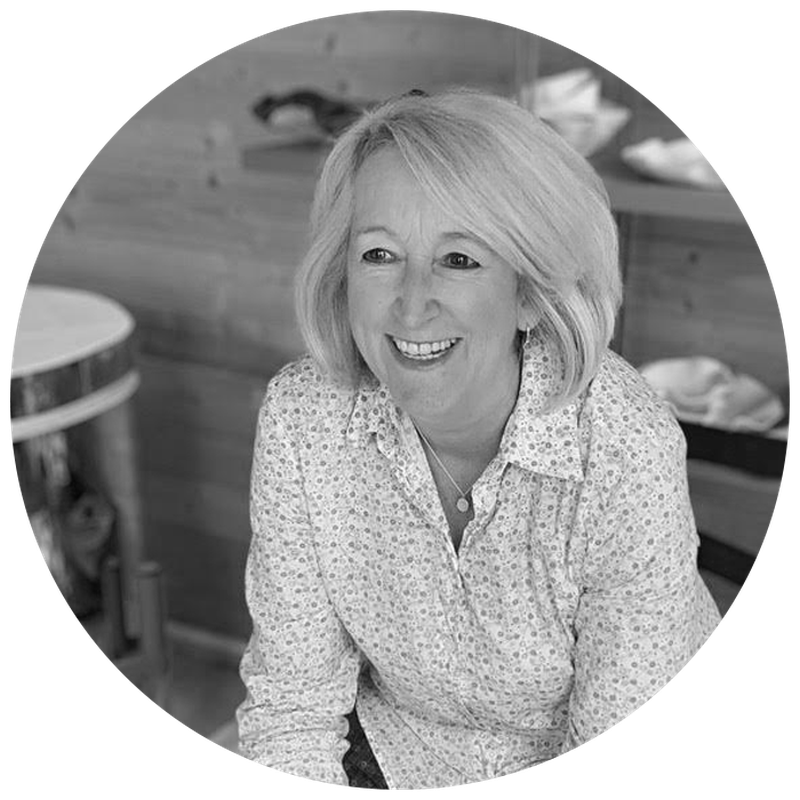
Joanna Ling
Joanna worked at Sotheby’s for nearly 25 years before starting her own ceramics business in her fifties. She now creates bespoke pieces from her garden studio in London.
“I worked for Sotheby’s for over 30 years in various guises: for some of that time in their European and Russian departments, but for the last 25 I ran the Cecil Beaton photographic archive. It was my dream job looking after such a unique and special archive. I left in 2018 and I now run my own business designing and making ceramics from my garden studio in south west London. My pieces are mainly bespoke, and I sell direct to clients as well as through various stockists.
“I decided to start my own business as I had been learning to make ceramics for several years in my spare time and had always loved it. Sotheby’s have a staff exhibition each summer and I submitted a bowl I had made after starting a ceramics evening class – much to my surprise, it sold to the chairman and a top-level Sotheby’s client commissioned me to make more. This sowed the seed of making a career out of what had just been a hobby.
“I was very happy in my chosen career and I don’t think I would have been ready for such a change in gear earlier on in my life. When I was younger, I really enjoyed the buzz and sociability of being part of a large international company but working for myself, from home, suits the way I want to live my life now. Also, financial pressures have eased a bit now my daughter has finished university.
“The most difficult part of leaving my career at Sotheby’s was letting go of what I’d built up over the years. It was hard not to be involved any more. I was lucky that I kept working with the archive as a consultant, so I did still get the Beaton injection. Not having a regular salary has been a bit scary, too. However, being my own boss is fantastic and the thrill I get when people buy one of my creations gives me such a buzz!
“It’s difficult to balance running a financially viable business whilst also making it enjoyable and not too stressful. It’s difficult to know how much to stretch oneself. It was a big investment building my own studio and buying a kiln and a wheel, but it has paid off massively. I have recently been contacted by a large global online fashion retailer to make a big collection for them. It can be challenging getting the balance right between taking on big projects and having a good quality of life, and also knowing what direction you want your business to take. I think that is very much affected by my age. I might have been more willing to work all hours to get the opportunity of a big project and now I know that enjoying what I do is more important than how much I am earning.
“I’m incredibly happy with the success of the business. I really had no idea how it was going to pan out, but because I started it when I was older I had more confidence to take on new things, approach people and use my contacts than I would have done when I was younger. For me, it’s been such a positive experience. I might have dared to take the plunge earlier had I known how much I would love my new life. Although I miss not having a regular pay cheque, the pleasure of being my own boss definitely outweighs that.”
Visit JoannaLingCeramics.com and follow @JoannaLingCeramics
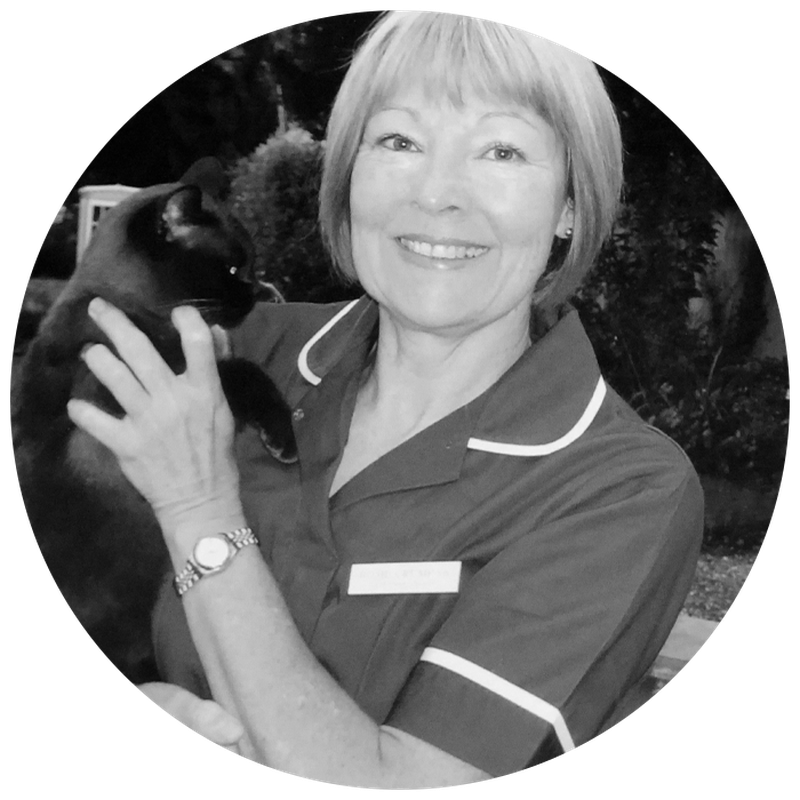
Rosie Pratt
Rosie worked for a city lawyer for 26 years and retrained as a veterinary nurse when she was 50. She now works as a legal advisor for an animal charity.
“I qualified as a solicitor in my twenties and rose to being partner of a city law firm, but after the breakdown of my marriage, I moved to the countryside where I set up my own firm. Then, on my 50th birthday, I had an epiphany and decided I didn’t want to continue with a career in law. I’d always wanted to be a vet so thought that would be a good time to give it a go. I knew someone who was the senior partner at a vet’s practice and asked if I could train as a nurse when they had an opening. I trained for two years and worked as a nurse for the next decade. I now combine both my areas of expertise as a legal advisor for an animal charity.
“Once my children were older, it seemed like a good time to try something new as they were at the age where they didn’t have to rely on me so much. As a lawyer, I was lucky that I could work flexible hours and arrange my time around the children, so once they were older, I had more time to go into a more practical profession. Being a vet can be a very stressful job and the hours can be very long. As a qualified nurse, I’d often have to work weekdays plus two 12-hour weekend shifts at the hospital.
“I loved retraining as a veterinary nurse. Even though I was 20 or 30 years older than everyone else in the class, I found the work fascinating. I came top in the nursing exams in the country – I was the class geek, but I was thrilled to be doing something I was genuinely interested in. While I’m very grateful for my career in law, the work wasn’t always the most interesting, so to suddenly be learning about the physiology of a reptile, for example, was great.
“Luckily, I found the process of changing careers very easy. The most challenging thing was the loss of status – as a nurse, you’re obviously more junior than a qualified lawyer. You can be ordered about a bit, but I think my age gave me a slight advantage. I’ve never worried too much about what other people think, and it sounds quite cool when you tell people you’ve left behind your old job to try something totally different. It was nice being a mother figure for the other nurses, too. There’s a great sense of community in the field.
“I’m often asked for advice on what to expect when you change career. The most important thing is to be truly passionate about what you’re going to do. Changing careers isn’t necessarily easy – there’s often studying involved, your whole routine may change and you might have to deal with financial difficulties. You’ve got to love what you’re doing then those things hopefully won’t matter as much. I’m so glad I made the switch when I did.”
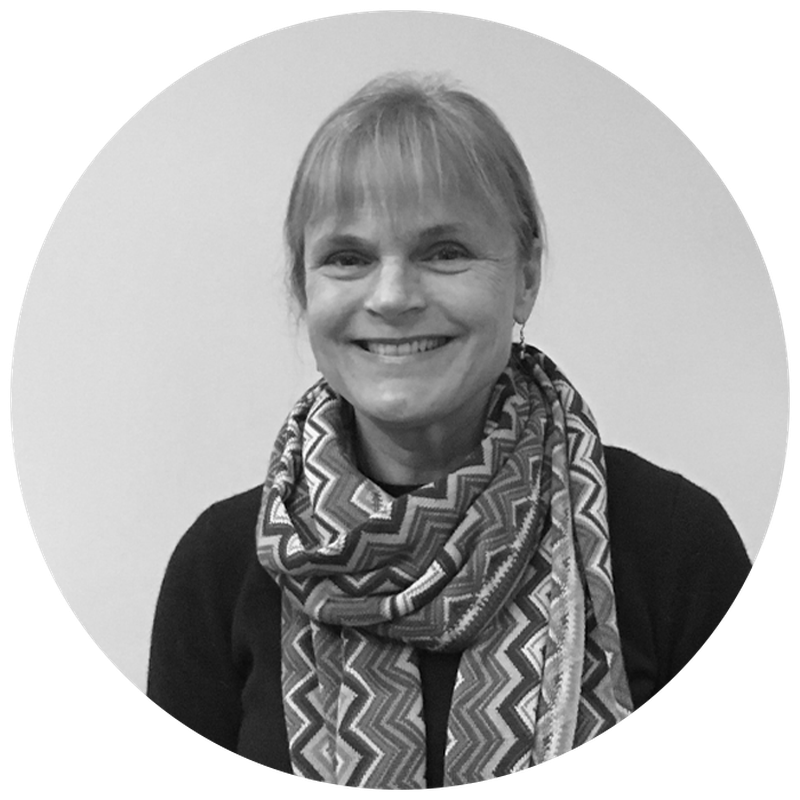
Anna Tingle
Anna decided to retrain as a counsellor in her mid-fifties after working as a teacher supporting children with learning difficulties.
“I trained as a specialist teacher and worked with children with learning difficulties for 19 years. I realised a lot of the children I taught were very anxious or had emotional challenges, rather than educational ones, so I enrolled in a day course on supporting children with anxiety. I loved the course so decided to keep learning and ended up doing a diploma in the subject. I realised that I could help others in a different way, which is when I decided to become a counsellor. I was still teaching on the side, while counselling in the evening, which was very difficult, both physically and emotionally. It wasn’t a sustainable way to work so I decided to pursue counselling as my full-time profession.
“I never saw it as a career change. Rather, it was a natural progression from what I was already doing and what I’m really interested in. Income has never been a driving force for me, but I feel lucky to do something where I can combine all my skills.
“The most difficult part was no longer being part of the school community. As most teachers will tell you, it’s a very tight-knit, energetic environment, so not having that as part of my day-to-day life was hard. Also, not having social interactions with the children was difficult, as was leaving behind colleagues who had become friends. I was very used to the school timetable and structure, so I’ve had to learn to rebuild that in my routine now.
“I loved retraining and studying again. Learning a lot of new information was difficult but, as humans, we’re made to learn new things all the time. It makes me feel more energised and has given me such a wonderful sense of accomplishment. Being a counsellor is hugely rewarding. Often my clients are mentally unwell or ‘stuck’ at some point in their life due to external circumstances. Being able to support those people and seeing them turn things around is amazing.
“My family were hugely supportive of my decision to leave behind teaching. They knew I wanted to do something different and go out on a high while I was still enjoying it. I might not have been able to do this if my children were still young – they’re all adults now, so that took the pressure off. Being able to work my career around my children has always been hugely important. As humans, we’re all so afraid of change, but we must remember that change is usually a good thing. Perhaps I could have started things a bit earlier but, ultimately, I have no regrets.”
DISCLAIMER: We endeavour to always credit the correct original source of every image we use. If you think a credit may be incorrect, please contact us at info@sheerluxe.com.
